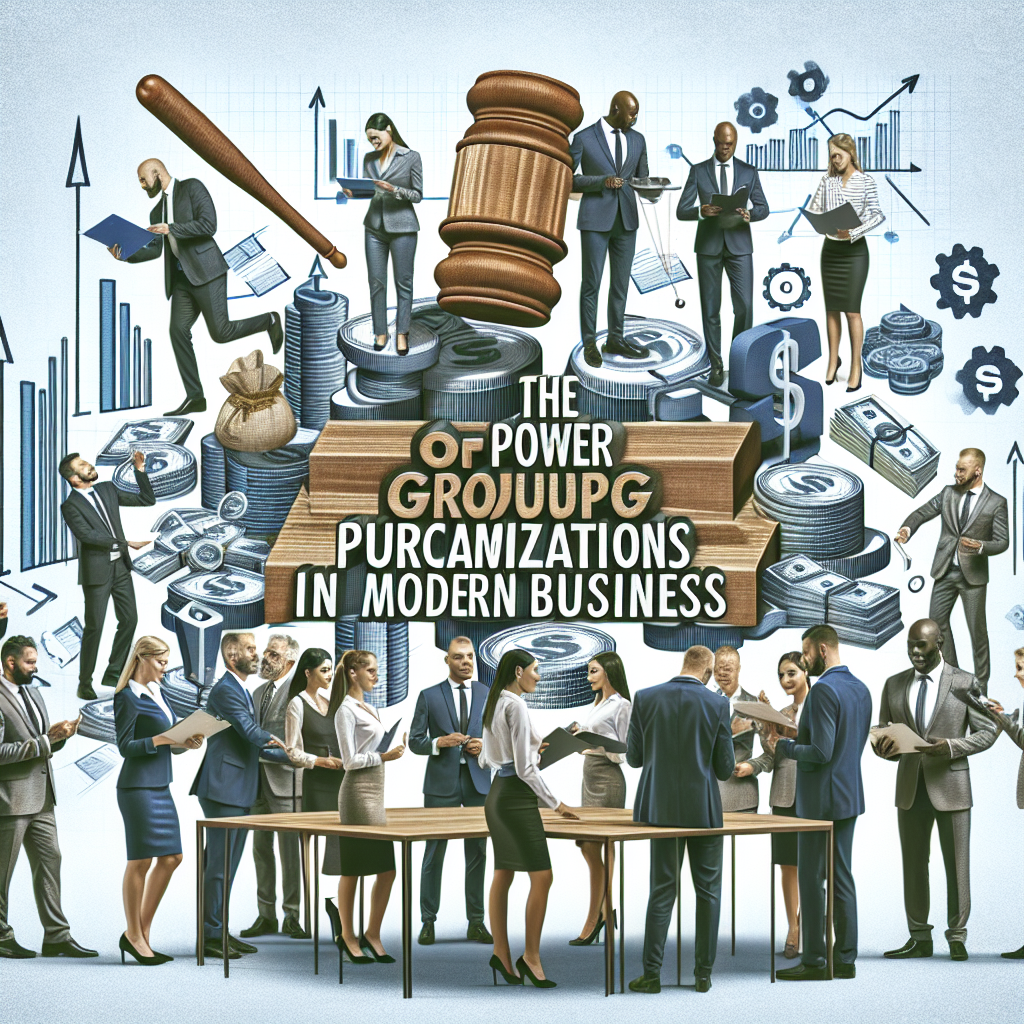Transparent supplier communication plays a crucial role in building trust between businesses and their suppliers. When there is open and honest communication between the two parties, it creates a foundation of trust that is essential for a successful and long-lasting business relationship. By being transparent about expectations, timelines, and potential challenges, both parties can work together to find solutions and ensure that the needs of both sides are met. This level of transparency also helps to prevent misunderstandings and miscommunications, which can lead to costly mistakes and delays in the supply chain.
Furthermore, transparent communication allows for better collaboration and problem-solving. When suppliers feel that they can openly communicate with their business partners, they are more likely to share valuable insights and suggestions that can improve processes and drive innovation. This level of trust and collaboration can lead to a more efficient and effective supply chain, ultimately benefiting both parties involved. In essence, transparent supplier communication is the cornerstone of a strong and mutually beneficial business relationship.
How Transparent Supplier Communication Drives Business Growth
Transparent supplier communication is a key driver of business growth. When businesses and their suppliers have open and honest communication, it creates an environment of trust and collaboration that can lead to new opportunities and increased efficiency. By working together to identify areas for improvement and innovation, businesses and their suppliers can develop new products, streamline processes, and ultimately drive growth.
Additionally, transparent communication with suppliers can lead to cost savings and improved quality. When there is open dialogue about pricing, delivery schedules, and quality standards, businesses can work with their suppliers to find ways to reduce costs without sacrificing quality. This can lead to increased profitability and a competitive edge in the market. Furthermore, by openly discussing quality standards and expectations, businesses can ensure that their suppliers are meeting their requirements, leading to higher customer satisfaction and repeat business. In essence, transparent supplier communication is not only essential for building trust but also for driving business growth.
The Impact of Trust in Supplier Relationships on Business Success
Trust in supplier relationships has a significant impact on business success. When businesses trust their suppliers, they are more likely to rely on them for critical components or services, leading to a more efficient and reliable supply chain. This level of trust also allows for better collaboration and problem-solving, as both parties are more willing to openly communicate and work together to find solutions.
Furthermore, trust in supplier relationships can lead to increased innovation and competitiveness. When businesses trust their suppliers, they are more likely to share valuable insights and collaborate on new ideas, leading to the development of innovative products and processes. This can give businesses a competitive edge in the market and drive growth. Additionally, trust in supplier relationships can lead to cost savings and improved quality, as both parties are more likely to work together to find ways to reduce costs without sacrificing quality. In essence, trust in supplier relationships is essential for business success.
Strategies for Establishing Transparent Communication with Suppliers
There are several strategies that businesses can use to establish transparent communication with their suppliers. First and foremost, it is important to set clear expectations from the beginning of the relationship. This includes clearly defining quality standards, delivery schedules, pricing, and any other important details. By setting clear expectations, both parties can ensure that they are on the same page from the start.
Another important strategy is to maintain open lines of communication at all times. This includes regular check-ins, updates on orders or projects, and being available to address any concerns or questions that may arise. By maintaining open lines of communication, businesses can ensure that any issues are addressed promptly and that both parties are working towards the same goals.
Additionally, it is important to be honest and transparent about any challenges or issues that may arise. By openly discussing potential challenges, both parties can work together to find solutions and prevent any negative impact on the supply chain. In essence, establishing transparent communication with suppliers requires clear expectations, open lines of communication, and honesty about potential challenges.
The Benefits of Transparent Supplier Communication for Business Operations
Transparent supplier communication offers numerous benefits for business operations. One of the key benefits is improved efficiency. When there is open and honest communication between businesses and their suppliers, it allows for better coordination and planning, leading to more efficient processes and reduced lead times. This can ultimately lead to cost savings and improved customer satisfaction.
Furthermore, transparent supplier communication can lead to better risk management. By openly discussing potential challenges or issues, businesses and their suppliers can work together to develop contingency plans and prevent any negative impact on the supply chain. This level of transparency allows for better risk assessment and mitigation, ultimately leading to a more resilient supply chain.
Additionally, transparent supplier communication can lead to improved product quality. When there is open dialogue about quality standards and expectations, businesses can ensure that their suppliers are meeting their requirements, leading to higher customer satisfaction and repeat business. In essence, transparent supplier communication offers numerous benefits for business operations, including improved efficiency, better risk management, and improved product quality.
Overcoming Challenges in Supplier Communication to Build Trust
While transparent supplier communication offers numerous benefits, there are also challenges that must be overcome in order to build trust. One common challenge is language barriers or cultural differences between businesses and their suppliers. This can lead to misunderstandings or miscommunications that can impact the supply chain. To overcome this challenge, businesses should make an effort to understand the cultural norms and communication styles of their suppliers and work towards finding common ground.
Another challenge is the fear of sharing sensitive information with suppliers. Some businesses may be hesitant to openly communicate about pricing or quality standards out of fear that their suppliers may take advantage of this information. To overcome this challenge, businesses should focus on building strong relationships with their suppliers based on mutual respect and collaboration. By establishing trust and demonstrating a commitment to working together towards common goals, businesses can overcome this fear and build transparent communication with their suppliers.
Additionally, another challenge is the lack of technology or infrastructure for effective communication. Some suppliers may not have access to the necessary technology or infrastructure for efficient communication with their business partners. To overcome this challenge, businesses should work with their suppliers to identify any gaps in technology or infrastructure and find solutions that allow for effective communication. In essence, while there are challenges in supplier communication, they can be overcome through understanding cultural differences, building strong relationships based on mutual respect, and finding solutions for technology or infrastructure gaps.
Case Studies: Successful Implementation of Transparent Supplier Communication in Driving Business Growth
There are numerous case studies that demonstrate the successful implementation of transparent supplier communication in driving business growth. One such case study is that of Apple Inc., which has established strong relationships with its suppliers based on transparency and collaboration. By openly communicating about quality standards, pricing, and delivery schedules, Apple has been able to ensure that its suppliers meet its high standards while also driving innovation in its supply chain.
Another case study is that of Toyota Motor Corporation, which has implemented transparent communication with its suppliers to drive efficiency and cost savings. By openly discussing potential challenges or issues with its suppliers, Toyota has been able to develop contingency plans and prevent any negative impact on its supply chain. This level of transparency has allowed Toyota to improve its risk management while also reducing lead times and improving customer satisfaction.
Furthermore, another case study is that of Nike Inc., which has established transparent communication with its suppliers to improve product quality. By openly discussing quality standards and expectations with its suppliers, Nike has been able to ensure that its products meet its high standards while also driving innovation in its supply chain. In essence, these case studies demonstrate the successful implementation of transparent supplier communication in driving business growth through improved efficiency, better risk management, and improved product quality.
In conclusion, transparent supplier communication plays a crucial role in building trust between businesses and their suppliers. It drives business growth by fostering collaboration, innovation, cost savings, and improved quality. Trust in supplier relationships has a significant impact on business success by leading to a more efficient supply chain, increased innovation, competitiveness, cost savings, improved quality, better risk management, and improved customer satisfaction. Strategies for establishing transparent communication with suppliers include setting clear expectations, maintaining open lines of communication at all times, being honest about potential challenges or issues that may arise. The benefits of transparent supplier communication for business operations include improved efficiency, better risk management, improved product quality. Challenges in supplier communication can be overcome through understanding cultural differences, building strong relationships based on mutual respect finding solutions for technology or infrastructure gaps. Case studies demonstrate the successful implementation of transparent supplier communication in driving business growth through improved efficiency better risk management improved product quality.





